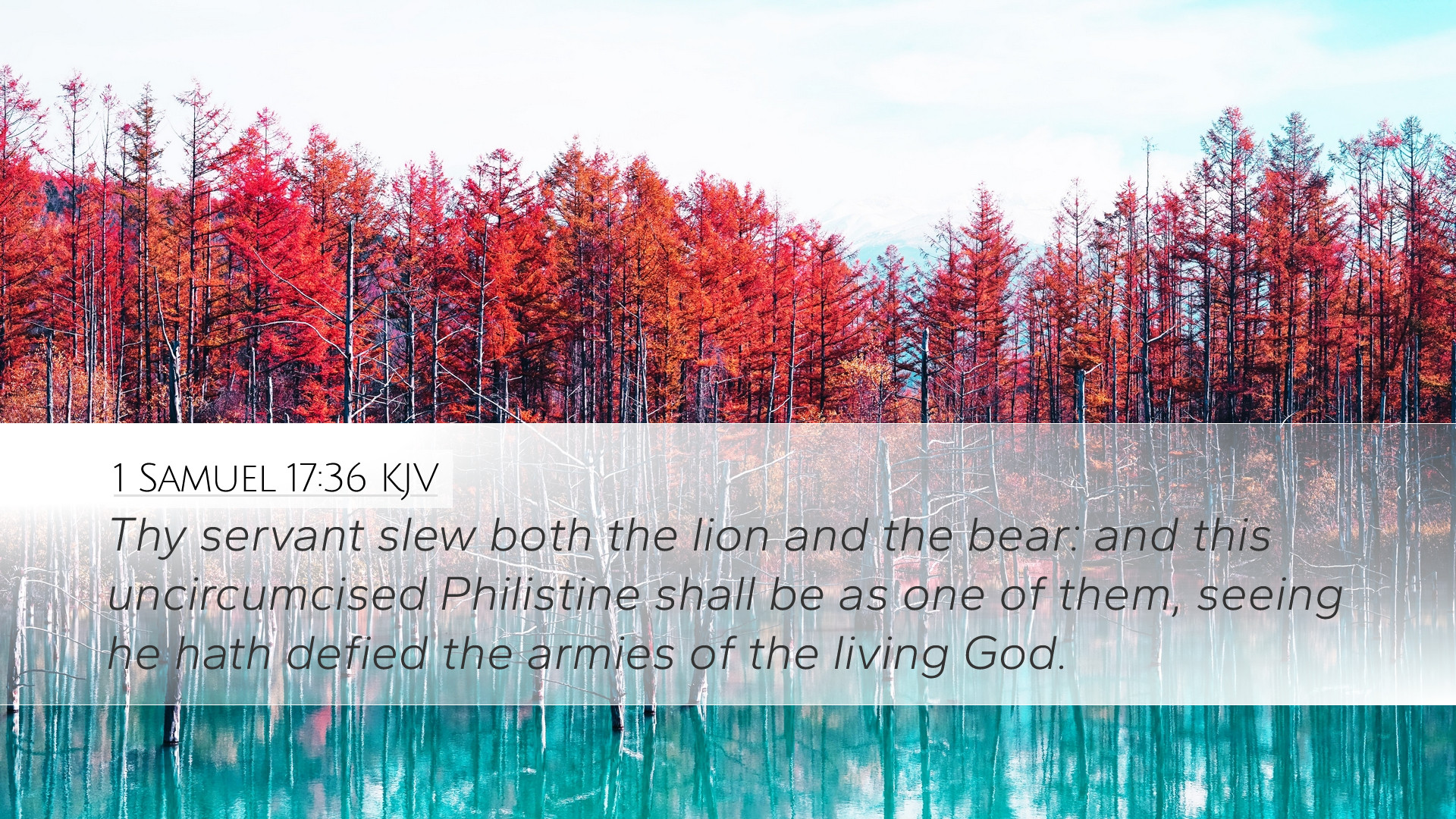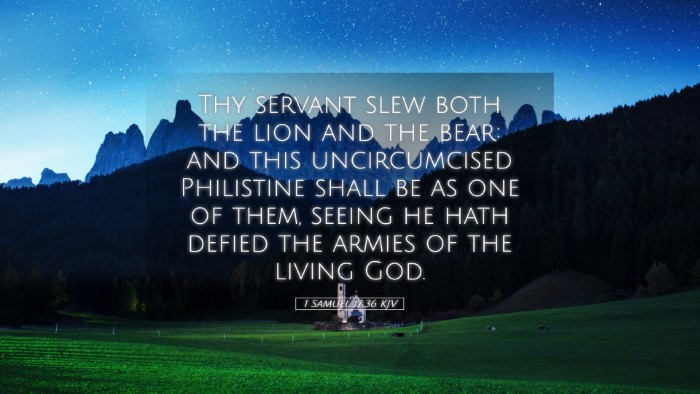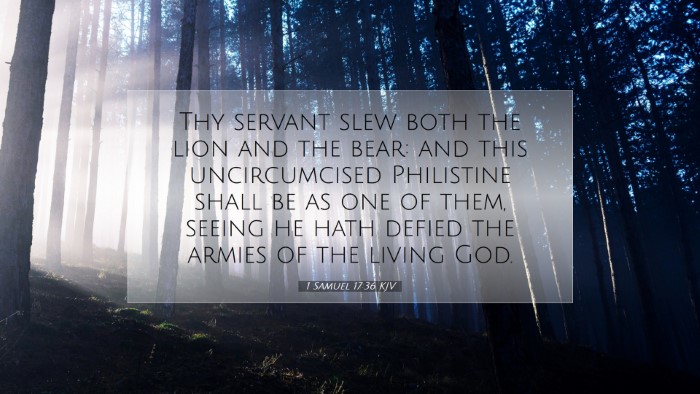Commentary on 1 Samuel 17:36
Verse: "Your servant has killed both lion and bear; and this uncircumcised Philistine will be like one of them, seeing he has defied the armies of the living God."
Introduction
This profound declaration by David in the face of Goliath leads us to a deep exploration of faith, courage, and divine empowerment. This commentary combines insights from esteemed public domain sources including Matthew Henry, Albert Barnes, and Adam Clarke, offering a comprehensive understanding of this verse suitable for pastors, students, theologians, and scholars.
The Context of the Battle
The battle between Israel and the Philistines is set against a backdrop of fear and intimidation. David, a shepherd boy, steps into a situation where the majority tremble at the sight of Goliath, highlighting God’s choice to use the weak to confound the strong.
Historical Context
At this time, the Philistines had been encroaching upon Israelite territory, and Goliath, their champion, represented both a military threat and a spiritual affront. David’s willingness to confront Goliath is not merely an act of bravery but a manifestation of deep-seated faith in God.
Analysis of the Verse
-
The Establishment of David’s Credentials:
David speaks with confidence regarding his prior victories over the lion and bear. These experiences were formative; they were not only physical confrontations but vital spiritual lessons. Matthew Henry points out that these incidents prepared David for greater challenges and illustrated God’s preservation of him in perceived danger.
-
The Nature of the Opposition:
David describes Goliath as "this uncircumcised Philistine," emphasizing that Goliath stands outside the covenant of God. Albert Barnes notes the derogatory term highlights the spiritual distinction between Israel and its enemies, reminding us that true power comes not from physical stature but from divine alliance.
-
Defiance and Faith:
David declares that Goliath has "defied the armies of the living God." Adam Clarke emphasizes that this was more than a mere insult; it was a challenge to God Himself. David recognizes that the battle is ultimately the Lord's, framing his confrontation with Goliath within the larger context of God’s glory and sovereignty.
Theological Implications
This verse encapsulates significant theological themes relevant for interpretation and application:
-
Faith in God’s Deliverance:
David’s confidence stemmed from his lived experience of God’s deliverance. As outlined by Matthew Henry, it shows that believers are called to remember and recount God’s past faithfulness as a means of stimulating faith in present threats.
-
The Call to Action for Believers:
David’s statement acts as a reminder that the faithful are called to action in facing adversities, calling others to stand firm in faith. Albert Barnes notes that faith often calls for stepping into the fray, trusting that God equips the willing-hearted.
-
God’s Empowering Presence:
This narrative explicitly demonstrates that it is God who empowers individuals for His purposes. Adam Clarke suggests that God often chooses the weakest among us to bring about His plans, which emphasizes His power over human limitations.
Practical Application
The account of David and Goliath transcends historical narrative, offering deep applications for contemporary believers:
-
Courage in the Face of Adversity:
Pastors and leaders can draw from David’s example, teaching that courage rooted in faith is essential for overcoming life's giants, be they personal struggles, community challenges, or spiritual warfare.
-
Preparation Through Past Experiences:
Believers are encouraged to view their life experiences—both challenges and victories—as preparatory moments for future endeavors, allowing them to trust God in more significant matters as outlined by Henry, Barnes, and Clarke.
-
Acknowledging the Sovereignty of God:
In every confrontation with fear or opposition, it is imperative to recognize God’s sovereignty. Churches and fellowships can encourage members to frame their battles within the context of God’s policies and promises, believing that He is alive and fighting for them.
Conclusion
The challenge David faced with Goliath is not solely a tale of victory against insurmountable odds but a robust testament to what it means to truly trust in the living God. His confidence was steeped in his personal relationship with the Lord, shaped by previous experiences of divine intervention. As scholars and practitioners of the faith engage with this text, may it inspire a deeper sense of reliance upon God, encouraging them to face their own giants with the same bold assurance exhibited by David.


